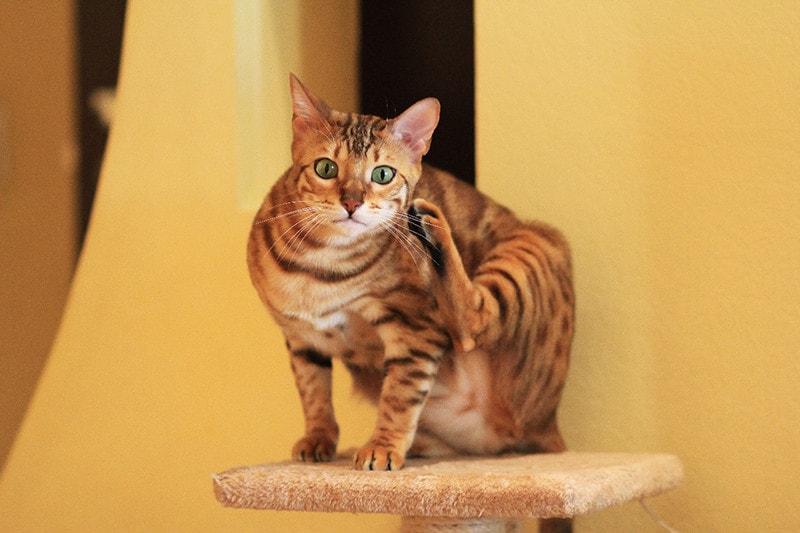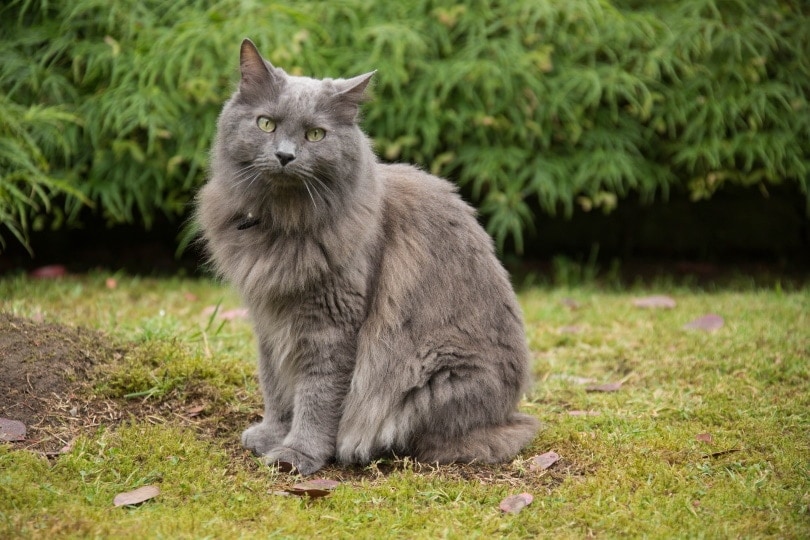Do British Shorthair Cats Shed a Lot? Care and Grooming Tips
Updated on
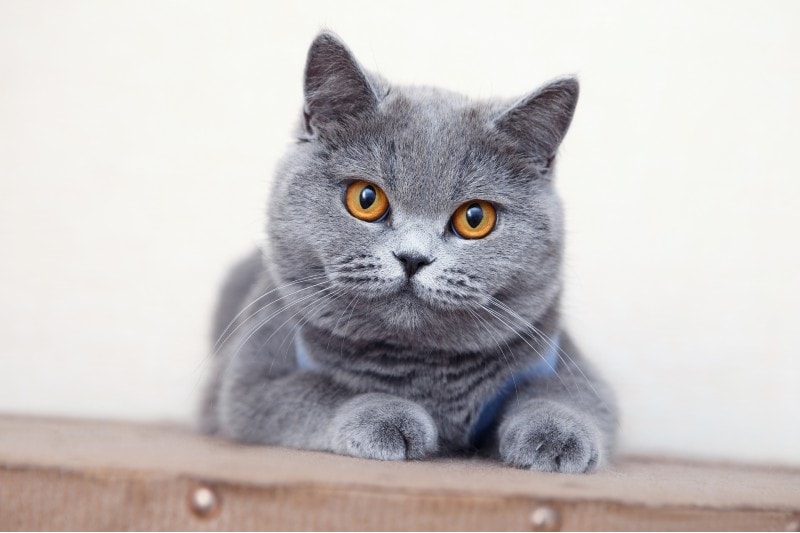
British Shorthairs have beautiful, short but dense coats that come in many different colors, such as blue, white, black, red, cream, brown, and lilac. Although not true for all British Shorthairs, many come with patterned coats. This breed is highly popular, and although not hypoallergenic, they don’t shed a lot, which makes them an easy breed to maintain and a great option for first-time cat owners.
Do British Shorthairs Shed Less Than Other Cat Breeds?
Most cat breeds shed and finding hair around your home daily as a cat owner is generally the norm. Although British Shorthairs do shed, they tend to shed less than double-coated cat breeds, which have more hair. This cat breed has a short, dense coat that isn’t double-coated.1
However, as with most cat breeds, your British Shorthair will develop a thicker coat in colder months to keep them warm. As the temperature begins to warm up, your cat will shed more than usual to get rid of the hair that they no longer need.
Your British Shorthair is likely to shed the most in spring and fall, but if they’re an indoor cat, they’ll shed less than outdoor British Shorthairs because they’ll have experienced less of a temperature change—which has an effect on a cat’s coat.
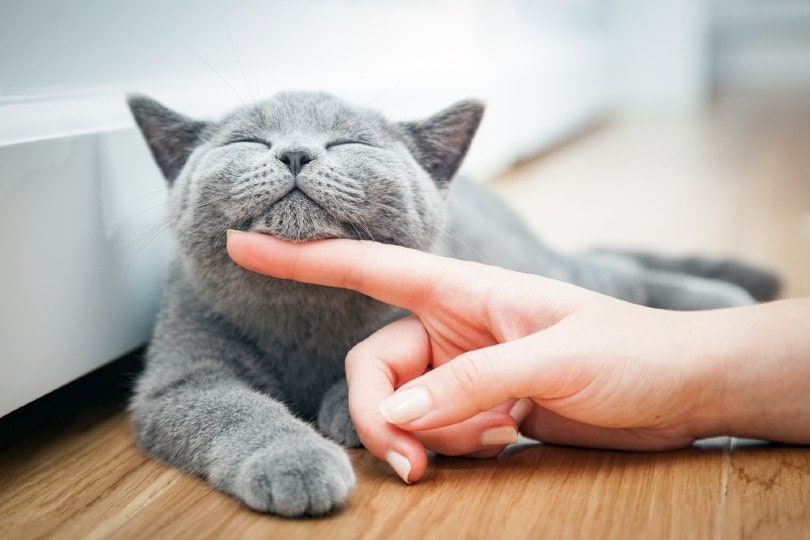
Reducing The Amount Your Cat Sheds
An unkept British Shorthair will shed more than a well-groomed one. Although this breed does an excellent job at grooming themselves, they still require brushing at least once a week. During spring and fall, when shedding is at its highest, you and your cat will benefit from more frequent brushings to remove loose hairs before they fall out around your home.
Occasionally bathing your cat will keep them clean, but some cats will put up a bit of a fight, especially if they weren’t introduced to it from a young age. Cats shouldn’t be bathed more regularly than every 6 weeks and should never be washed with human shampoo.
Instead, get a cat-friendly shampoo that is gentle on their skin and has moisturizing properties to prevent their skin from becoming flaky and dry. Bathing doesn’t only keep your cat clean but will cause loose hair to come out as you massage the shampoo in and rinse them with water.
If you need a great brush, we recommend the Hepper Cat Brush. This easy-to-use product reliably removes loose hair and knots, and you can clean it with the touch of a button! Try it and you’ll see why this brush is perfect for you and your cat.
- ONE PUSH RELEASE - This kitten brush / cat brush pops out fur with just a simple press, leaving you...
- DURABLE - Cat shedding can be a tough ordeal. Made of resilient ABS plastic and metal bristles with...
The Benefits of Grooming Your Cat
Checking your cat’s ears for wax build-up, caring for their dental health, and trimming their nails are other important steps within the grooming process.
Apart from reducing shedding around your home, grooming is beneficial because it reduces hairballs, helps you spot fleas and ticks early, keeps you aware of your cat’s health, protects them from injury and illness, and builds a bond with you and your cat.
If you’re allergic to cat dander and cannot groom your cat yourself, take them to a groomer. It’ll benefit your cat and keep your allergies under control because the less hair around your environment, the less you’ll suffer from allergic attacks.
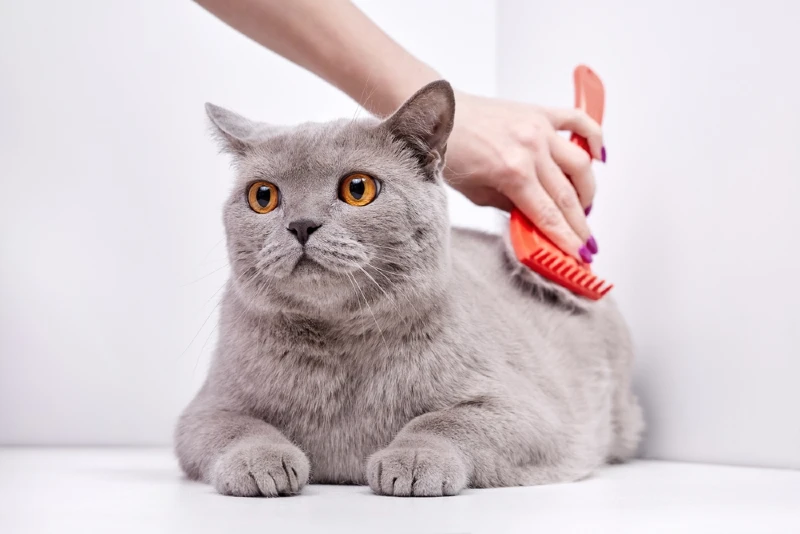
Why Is My British Shorthair Shedding Excessively?
If you’re grooming your British Shorthair’s coat and it’s not spring or fall, and yet they’re still shedding excessively, it might be an indication that something isn’t right with their health.
There can be many reasons why they’re losing a lot of hair, and the best thing you can do for them is to take them for a check-up with their vet. The solution might be as simple as changing their diet. Here are some potential reasons why your British Shorthair is shedding excessively:
A Poor Diet
A low-quality food will be cheaper, but it may cause your cat’s coat to change negatively. A dull coat that doesn’t feel as soft and silky as it once did isn’t getting the nutrients it needs. Excessive shedding always accompanies an unhealthy coat.
Transition your cat onto a balanced, high-quality cat food that contains the vitamins and minerals they need. As an obligate carnivore, your cat’s diet should contain animal protein, which should be listed as the first ingredient.
Sensitivities/Allergies
If your cat is sensitive to certain particles in their environment or various ingredients in their food, the shedding can increase. Other symptoms that are often seen in an allergic cat are itchy skin, coughing, sneezing, or digestive issues.
Cats are often allergic to the saliva of fleas and should receive flea and tick treatment regularly to kill the fleas that try to bite into their skin.
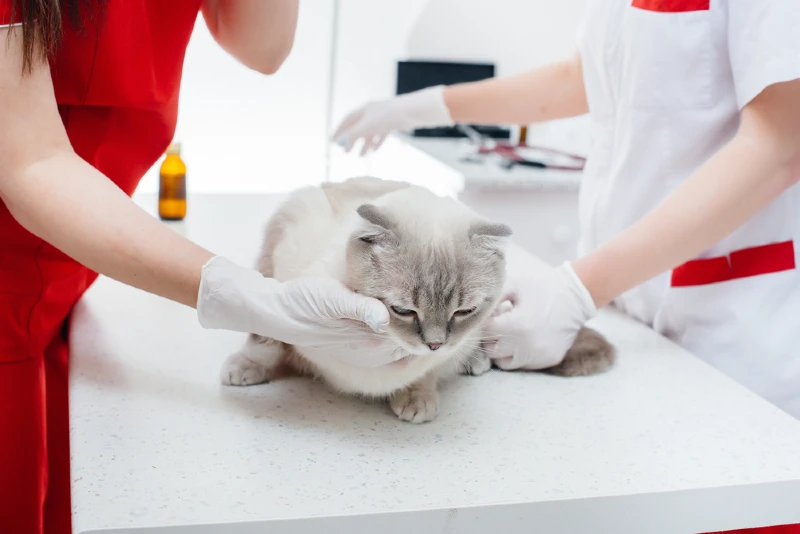
Stress and Anxiety
Stressed or anxious cats generally shed more. They may also start to neglect self-grooming or become excessive with it causing bald spots to form. If your cat’s behavior has changed and they have become more withdrawn, consider all the changes that have occurred within their home recently.
Cats can feel stressed out due to a new baby, a new home, the loss of a pet, and many other factors. Show your cat patience and care and provide them with areas of quiet where they can feel safe and protected.
Age
Senior cats are likely to shed more than younger cats. This might be because they’re going senile and may forget to groom themselves or because they’re not as flexible as they once were and can’t reach the same spots on their body that they used to be able to.
You’ll need to step in and groom your cat every day because they’re no longer able to. Use this time to give your cat extra attention and cuddles because they won’t be around forever.
Cats Breeds That Don’t Shed a Lot
If you’re allergic to cat dander, a British Shorthair probably isn’t the best cat breed for you to keep in your home. Although most cat breeds shed to some degree, there are a few options that are non-shedding or shed very little. Although not a British Shorthair, these beautiful breeds are better suited for allergy suffers:
Conclusion
British Shorthairs are popular and for a good reason. They’re good-natured and beautiful, are available in a variety of different coat colors, and don’t shed an awful lot. This breed is by no means hypoallergenic, but they don’t shed their hair excessively, especially when groomed often. However, if your British Shorthair is shedding excessively, it’s time for a trip to the vet because it could be a sign that something isn’t right with their health or diet.
Featured Image Credit: FotoMirta, Shutterstock


